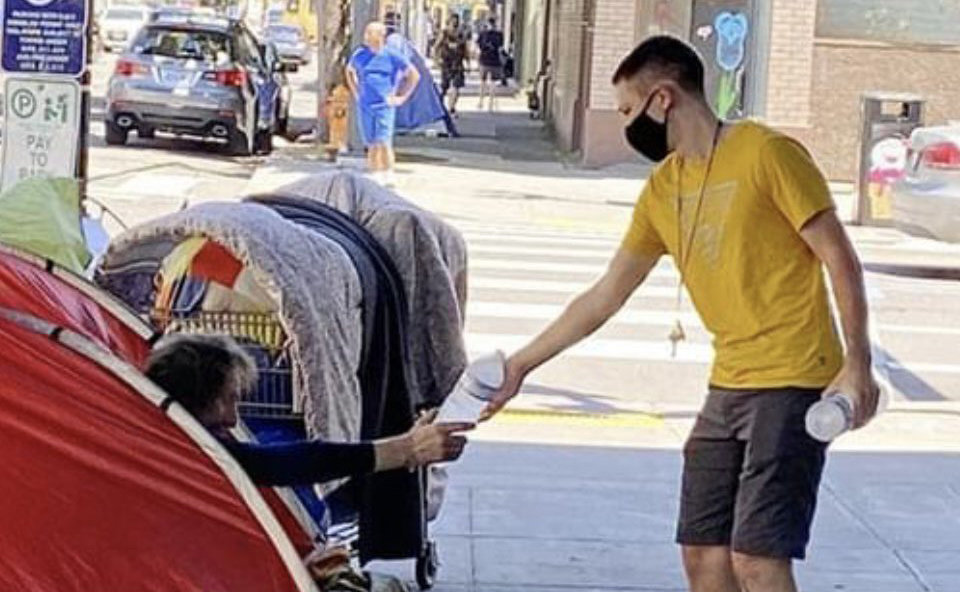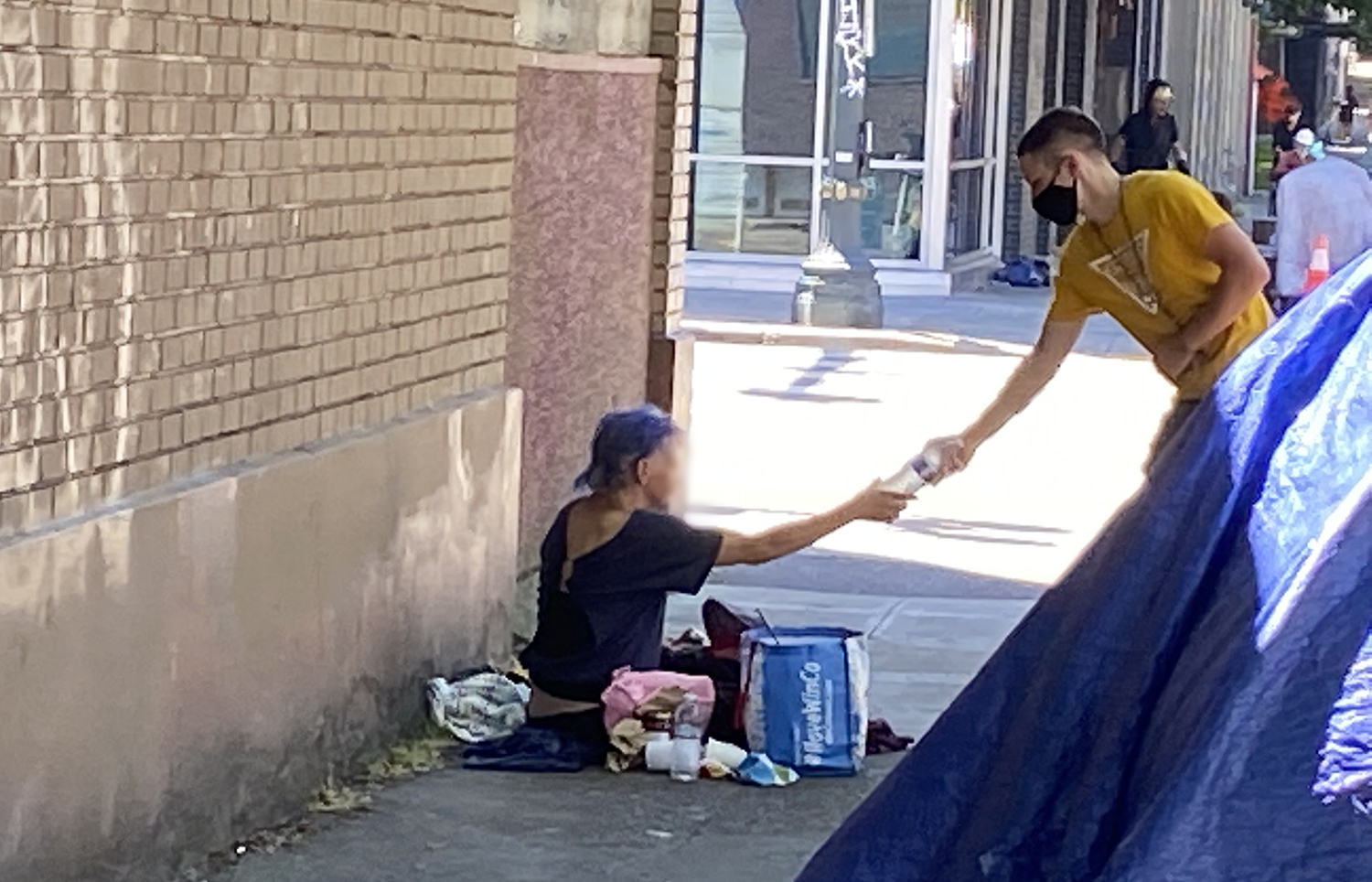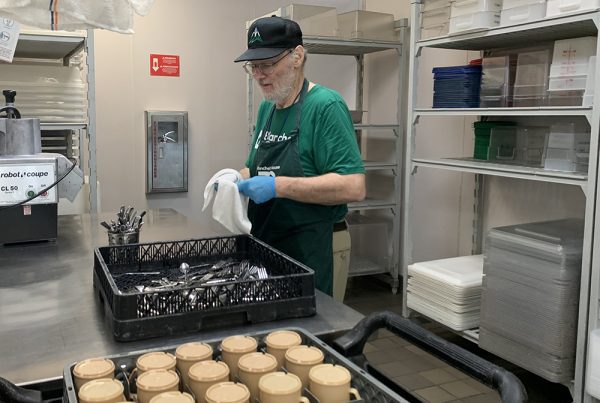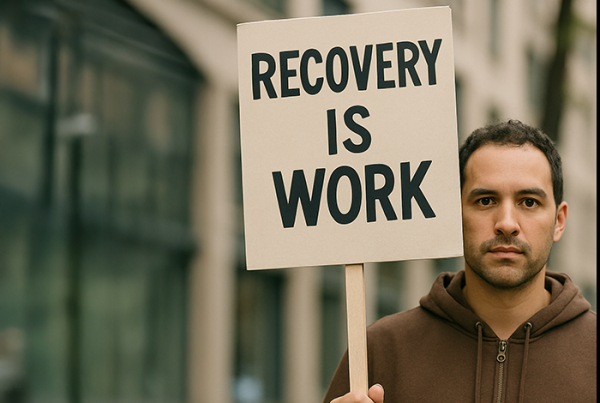Homelessness is a complex issue that affects people around the world. In the Portland area, more than 3,000 homeless individuals are at risk of dehydration during the hot and dry summer months. Dehydration is a significant health risk to people with underlying conditions.
Understanding why people experiencing homelessness are more susceptible to dehydration will help to shape how our community responds to the need for resources like drinking water. And you can make a big difference.
Reasons for Vulnerability to Dehydration
People experiencing homelessness due to poverty, addiction, mental health, or a series of unfortunate events are often pushed to survive at the margins of our communities. The margins can mean a tent behind an abandoned building, a doorway for the night, or sleeping in your car. These are not usually places that offer a person reliable access to food, water, and safety.
Here are the most common reasons for people to not have access to drinking water.
1. Limited Access to Clean Water
- Homeless individuals often struggle to find clean drinking water sources.
- Public drinking fountains may be inaccessible or insufficient in number.
- Financial constraints can make it difficult for them to purchase bottled water consistently.
- Businesses often decline requests for water or charge for it.
2. Lack of Shelter
- Homeless individuals are exposed to the elements, including extreme heat.
- Prolonged exposure to high temperatures without proper shade or shelter leads to excessive sweating and fluid loss.
3. Limited Resources
- People experiencing homelessness must prioritize immediate needs, such as food or finding a safe place to sleep, which can overshadow staying hydrated.
- Carrying large jugs of water or storing water may not be feasible for those experiencing homelessness.

A volunteer offers a homeless man water in Portland to prevent dehydration during a summer heat wave.
Here’s How You Can Help Homeless People Avoid Dehydration
There are so many ways you can help people in your community. If you live in the Portland area you can donate water directly to Blanchet House for distribution.
1. Donate Bottled Water
- Donate single-use bottles or reusable bottles to local homeless shelters, community centers, or organizations working with the homeless like Blanchet House. Blanchet House will refill containers with fresh water during daily meal services.
- Bring your community together to organize water bottle drives. Contact the organization your drive will benefit ahead of time.
- Include a bottle of water in a care kit.
2. Support Water Outreach Programs
- Get involved with local initiatives that provide water outreach to the homeless.
- Volunteer your time and skills to distribute water to those in need. Always do this in a group for safety or with an organization.
- Advocate for increased funding and resources for organizations that focus on water assistance programs.
3. Raise Awareness
- Use your voice by posting to social media to raise awareness about the issue of dehydration among the homeless during summer.
- Share educational content, personal stories, and practical tips on how your friends can contribute to solving this problem.
4. Encourage Hydration Stations in Your Town
- Advocate for city officials to install hydration stations in public spaces or areas with a high concentration of homeless individuals. These stations can provide access to clean drinking water, helping to alleviate the risk of dehydration.
By donating water, supporting water outreach programs, raising awareness, and advocating for hydration stations, we can help ensure that people experiencing homelessness will be able to access life’s most basic necessities. Remember, even a small act of kindness like offering a bottle of water can go a long way in making a positive impact on the lives of homeless individuals in our communities.
Contact Blanchet House for more information about donating water or volunteering at volunteer@blanchethouse.org.


















